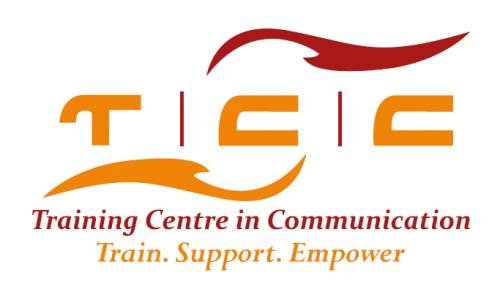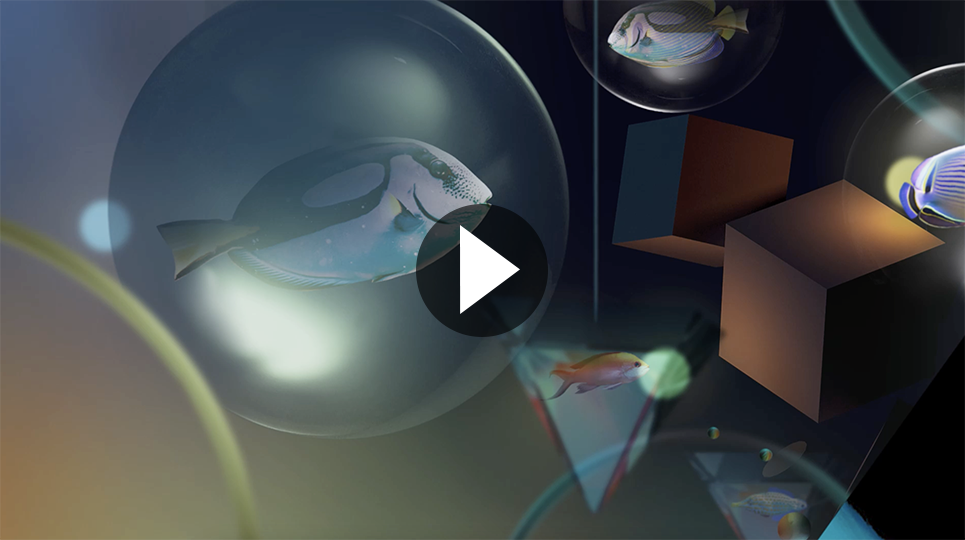When all voices are heard, we can make science stronger and improve the world of tomorrow
With you, the researchers of today, we can transform the future of Open Science
Change starts here. To each of you who want to make science communication better: we're listening.
As our advocates and critics, creators and testers of new ideas, researchers like you guide the way.
Like this video? Share it with colleagues!
Together, we can cultivate a more inclusive and trustworthy future for science.
We want to grow your presence in all places and spaces
Our definition of Open is one that invites all researchers to contribute, learn from, and build on scientific discoveries, no matter where you are in the world.
Listen to our Co-Editors-in-Chief’s discuss diversity, equity and inclusion in Open Science from the field of Global Public Health
Like this video? Share it with colleagues!
We are inviting applications for Editorial Board Members for PLOS ONE. Will you help us shape standards in research?
See our Editorial Director’s updates on our commitment to diversity, equity and inclusion.
Partnerships and policies
We’re working hard to recognize local needs that can more-fully inform our ways of working and continue to develop editorial processes that recognize and minimize bias in the publication process.
Launching new journals
Unified in addressing global health and environmental challenges from diverse, local perspectives, the new journals help us expand our international footprint.
Open Science cannot be shaped from one corner of the world
Without equitable opportunities to publish, Open Access cannot be truly open. To support authors of all research communities, funding backgrounds, and institutional requirements, all PLOS journals offer APC-alternative business models. Our institutional partnerships allow you to publish without worrying about cost.
How would you transform Science communication?
Leave a comment below.
Thank you for taking part in this discussion. Please note that your information will only be used for the purposes of leaving a comment on this discussion board.
Comments containing advertisements will be removed.
25 responses to “Inclusion”
With you, we can transform the Future of Open Science




We fully believed that open access is a real need, however developing countries are always disadvantageous due to the inability to pay pagecharges that are soaring so high and not supported by their institution and their inablity to acces quality journal as subscription is needed, but that cost about months of their salaries.
Our Laboratories have published a number of papers in PLoS One. But, with more and more OA journals supported by well-established societies and focused on different fields, I think mega-journals like PLoS One are at a major disadvantage compared to the OA journals of specific fields for the quality of the feedback and reviews. It seems that adding specific sections or more sub-journals organizing the review process around field-specific editors and communities of authors and reviewers may be needed to establish a growing reputation and increasing trust in the specific fields. There are already many new OA journals as the second tier to leading top journals of the field that are very attractive in our field and a growing competition for PLoS, e.g., Intensive Care Medicine Experimental (ICMx), Critical Care Explorations, or ERJ Open Research.
A good initiative by PLOS. I have had a number of fruitful publishing experiences with PLOS. I have succeeded in publishing nearly 6 articles in PLOS journals since 2013 to date. Recently, one of my articles was not accepted by them. This made me disappointed, but I always prefer PLOS due to the transparency of the publication process, especially the bias-free peer review system, the recent introduction of preprint posting services, and publishing the reviewer comments along with the accepted manuscript, while correctly identifying the good quality works. I’m happy to say that all of my papers that got published in PLOS received honorarium awards as top research in their field, which reflects the quality of work that succeeded get through its high-quality review system. The publishing chain of PLOS paves the path to ensure scientific integrity, which will have a great impact on outward scientific communication. Ultimately, this will enhance public trust in communication.
I completed a Ph.D. in political science and published widely in that discipline, social psychology, and communication while teaching courses in political and health behavior. I have concluded that many people, especially students, do not know a clear definition of a “fact” is and how to evaluate information concerning pressing issues. This is certainly a major problem in education institutions in failing to instill notions of science and how to distinguish between fact and non-sense when it, e.g., the efficacy of shots re current coronavirus.
Science communication to Who? Traditionally most journals are for communicating among Scientists and even then those privileged enough to pay.
In my part of the world, most people dont give a hoot about science. Prayers are more believable than the Magic of science. That is notwithstanding that its the wonders of science that make their lives possible.
Therefore I think that a new stream of publications can be considered which reach the wider society and expand the reach of the amazing discoveries to the younger wider society.
I believe that the disinformation and misinformation that has been spawned by 5G and most effectively by Covid19, going well up the apex of the global political leadership is a wake up call. That science can deliver the goods (eg covid vaccine) but that a good wider conserted communication must preceed the serving the goodies.
Cheers
Hi Morris,
Making sure research makes its way to those who can benefit from it is key. Reputable media outlets help researchers spread the word to a broader audience but it is definitely important to get the story right. Some publishers like PLOS facilitate the relationship between authors and the media to ensure scientific evidence is shared accurately and effectively but researchers can also work independently with science media centers like SciLine to share their expertise with journalists. We also offer tips in our Media Toolkit for authors who want to promote their work on their own.
I have 3-4 papers ready to go but do not have the thousands of dollars needed to publish them. I am an adjunct faculty that has no current research support. I can’t be competitive for a tenure track or other permanent research position or grant support without the publications. Catch 22? Academia is NOT inclusive. Science publications are NOT inclusive. Get rid of the publication fees so everyone can publish and everyone can read and access the publications!! Free Science!
You can apply for a publication fee waiver from the Journal. There is an option for that. Please also keep in mind that open science costs a lot for maintenance and article processing until and unless the journal gets generous funding support from external funding bodies.
We agree that Open Access publishing won’t be truly inclusive until it is equally accessible to all. While the APC model helped pave the way to Open Access for readers to freely discover, read and reuse trusted research, it has, also imposed new barriers for some authors. While PLOS has long offered publication fee support, as Seyed has pointed out, we are also working to transform OA publishing more sustainably by creating entirely new Open Access models that can eliminate author fees. There is a lot more work to do in testing and expanding these solutions but we do hope the future of publishing can be both open to read and open to publish!
Hello
I read PLOS in order to learn – I am an older layman and I like challenge. I have a complaint about how scientists write popularized books: basically, in my concentrated evolution/Neanderthal studies I find – found during the recent past – that ‘some’ popularizers “tell tales” (individually) that are far fetched, dwell upon acrimonious nonsense and invest in personal claptrap. Conversely, I like to read books by Rovelli, Halpern, ad Lee Smolin (role models) – that dwell on real science (my point). Economically speaking, we pay to read science, even modified for layman understanding. It woud be a help if scientist-writers got that point. I thank you for your articles over time. Sincerely Win Fleet
Open Publications System is a relatively new concept and is an excellent idea. Without some basic rules and regulations has the potential to be exploited by researchers with an opinion that may or may not be appropriate. As one can see then in ” Letter to the Editor” in response to publications by a rival group. Even though very valid in terms of scientific inquiry and correcting potential errors in their analysis and conclusion, it has the potential to be misused as the funding is highly competitive.
The current formulation of open access publication does not appropriately recognise the time and efforts of the researchers (who submit articles) and reviewers. While all open access articles are available to all, the hurdle to publish articles is very high for researchers in developing world nations. The fact that they have both to find grant money to do the work AND funding to pay the APCs has added to an already unequal equation for academics in the developing world. Yes, some journals will waive APCs for the so called”low income countries” but this is most often not the case for those of us at the next level – the so called “middle income countries”.
What I would like to see in place is a “quid pro quo” where by reviewers get some “pay back”. If fact some journals offer this but usually a reduction in the APC in the journal that the reviewer did the review. I think that this “pay back” should not necessarily go to the reviewer but the organisation that pays their salaries. Also that it should not be journal specific but for the full suite of journals from a specific publisher. Thus universities, could, through their staff, earn “points” which they could allocate to their researchers who wish to publish in journals from a particular publisher. I think this would go a long way to levelling the current playing field and it would also incentivise people to do reviews – a problem well known to those of use who are associate editors for journals.
Dear PLOS team,
My name is Ayman Mostafa. I completed my Ph.D. in Veterinary Clinical Sciences at UIUC, USA, and am currently a professor at the Faculty of Veterinary Medicine, Cairo University, Egypt. I’m specialized in the field of Small Animal Surgery and Diagnostic Imaging and would like to join PLOS ONE as an editorial board member. I’ve sent my CV to edboardmgmt@plos.org.
Thank you,
Ayman
Hi Ayman,
Thanks for your interest in becoming a PLOS Editorial Board Member. The Editorial Board Services team will review your CV and will be in touch.
In a pandemic period the research on novel breakthrough area to understand the aggressive situation in the background of epigenetic insult in post genomic era is pertinent point and focusing research in metabolic disorder, dysfunctional stem cell should be encouraged. During this period I raised many basic questions in language of impossibility bit major reviewers couldn’t come out from the inbox of existing knowledge. I hope your journal will encourage the breakthrough research and statements.
Unprecedented new idea or innovative approach is mostly frequently rejected or suppressed by peer reviewers or journal editors, especially in theoretical biology fields. Here is my bitter-sweet story. During my graduate student, postdoc and junior faculty period, I spent 10 years to derive the median-effect equation (MEE 1976) when I was 38 years old. Another 7 years, I introduced the combination index equation (CIE, 1984). However, after repeated rejections for publication and my self-defense, the theory was still largely ignored and suppressed for nearly two decades, mainly due no precedence, not trendy and difficult to comprehend. At age 50 and 60, I had 692 and 4,285 citations, respectively. Now, MEE becomes the “Doctrine of the Median”, the unified general theory of mass-action law biodynamics, pharmacodynamics and bioinformatics (MAL-BD/PD/BI) with integrated algorithms for computer analysis/simulation. Now at age 83, the CIE/algorithm/method for synergy quantification (Chou & Talalay, Adv. Enz.Regul.22:27-55,1984) alone, as of 10.24.2021, received 7,371 citations in 1,420 journals, encompassing nearly all disciplines on biomedical sciences. Interestingly, my top three theoretical articles, are cited 15,669 times, each article with only one or two authors (by invitations), virtually bypassing all review process, and without any specific grant support.
The complacency in attitude and difference in logics and science-policy priorities, have resulted significant delay of this MAL-PD based efficient, cost-effective, quantitative and integrated e-digital drug evaluations and biomedical R&D, in vitro, in animals and in clinical trials. Glad to note here, that the MAL-PD/CI theory/method has found utilities in molecular and cellular biology, radiation, photochemistry, material science, as well as in environmental and agricultural sciences, which open a new horizon for functional dynamics and bioinformatics.
Dear PLOS team,
I am Harikrishnan V. I completed my PhD in Molecular Cardiology and am currently a postdoctoral research fellow at the Albert Einstein College of Medicine, New York. I specialize in the field of pathogenesis of cardiac fibrosis and its underlying mechanisms. I would like to join PLOS as an editorial board member.
Thanks,
Hari
Hi Harikrishnan,
Thanks for your interest in becoming a PLOS Editorial Board Member. Please send your CV to the Editorial Board Services team at edboardmgmt@plos.org and specify which journal you are interested in.
I would like to be editorial board member for PLOS. I am a scientific research professional with 24 years of experience in academic institution with extensive knowledge and experience in studying pulmonary arterial hypertension specializing in areas of metabolism and immunology.
Hi Megha,
Thanks for your interest in becoming a PLOS Editorial Board Member. Please send your CV to the Editorial Board Services team at edboardmgmt@plos.org and specify which journal you are interested in.
It is interesting. Let me be in the loop as your project gets momentum. I may contribute as a think tank if and when topics fit (near fit) within my expertise. But keep the exit door open, in case there is intellectual mismatch. You have already diversified and consolidation should be the key.
Often research iadeas are turnished by the editors in journals of economics by desk rejecting the papers and not allowing them to be refereed. I beleive that PLOS should arrange to publish New Research Ideas Economics before they are fully executed and welcome ideas from all across the globe. Science research of any kind must be aware of the ideas being floated. Of course the ideas need to be evaluated properly with a wide array of editors and the submissions should be brief and percise. Published ideas can be developed by others , but must cite the original work.
excellent initiative by PLOS
Very Good Editorial and Publication policy
Excellent enhancement of Scientific Communication
Is it possible to have the support, I mean the fund support, to publish in journals like Foods MDPI?
Hi Mechak,
Thanks for your question! PLOS is working with library partners to offer a range of APC-alternative models that are tailored to the specific publication needs of researchers at our journals. Our goal is to reduce or eliminate author publication fees and make Open Access publication more equitable for researchers of all funding backgrounds.
Unfortunately we don’t have information about the offerings available at other publishers, but if you’re interested in publishing with PLOS, you can explore our journal options here. If your institution is a PLOS partner, your publication fees at one or more of our journals may already be covered. We also provide publication fee assistance for authors who lack funding for APCs, even if their institution is not a partner. You can learn more about publication support options on our fees page.